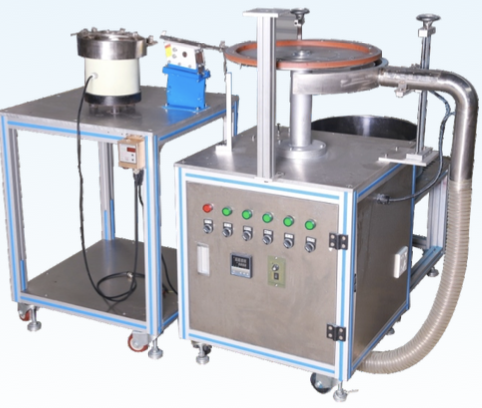
Liquid Glue Screw Coating Machine
The Liquid Glue Screw Coating Machine is an industrial device designed to apply a precise layer of adhesive, typically liquid glue, onto screws or similar fasteners. This machine is commonly used in manufacturing processes where it's necessary to coat screws with adhesive before assembly to ensure a strong bond and secure fit.
The machine works by loading screws into a hopper or feeder system, sorting and aligning them for consistent application, and then applying a precisely controlled amount of liquid glue to the threads of each screw. Some models may also include a drying mechanism to ensure the glue sets properly before the screws are ejected for further processing or packaging.
This type of machine offers several benefits, including enhanced bond strength, cost-efficiency through reduced material waste and labor costs, and quality assurance through consistent coating. It is widely used in industries such as furniture manufacturing, electronics assembly, and automotive production.





















































